A career as an electrical worker holds three distinct pathways: WIREMAN, LINEMAN or INSTALLER TECHNICIAN. Take a second to learn about the incredible opportunities within the electrical trade.
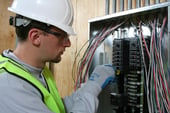
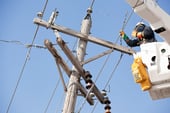
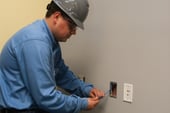
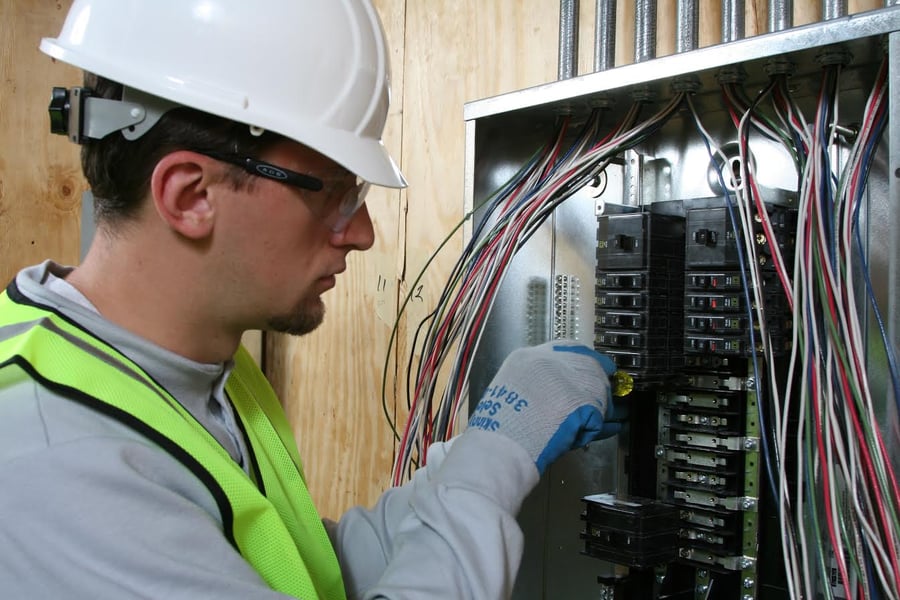 The Wiremen installs the systems that distribute power from the point of entry in a building to the equipment within a building that uses that power.
The Wiremen installs the systems that distribute power from the point of entry in a building to the equipment within a building that uses that power.
As technology continues to grow, buildings (and the people who inhabit them) place more and more demand on their electrical systems. The tasks associated with the Wiremen continually evolve. Today's buildings are now being equipped with computer networks, energy management systems, security systems, fire alarm systems as well as the standard power distribution systems to lights and receptacles throughout the structure.
Many of the work processes of the Wireman are listed below. Properly trained Wiremen can work on a variety of types of systems that are found in today's residential installations.
- Plan and Initiate Projects
- Install Underground Power Circuit and Telephone Feeders to Entrance Facilities
- Provide or Connect to the Grounding Electrode System
- Install Pathways and Spaces for Installation of Low Voltage Wiring
- Install Pathways and Circuit Conductors for Power Distribution
- Test, Certify and Troubleshoot All System Wiring Installations
- Install Sound and Cable TV Distribution Systems
- Install Local Area Network Systems
- Install and Work on other subsystems such as Heating / Air Conditioning, Photovoltaic
Generation and Energy Management Systems
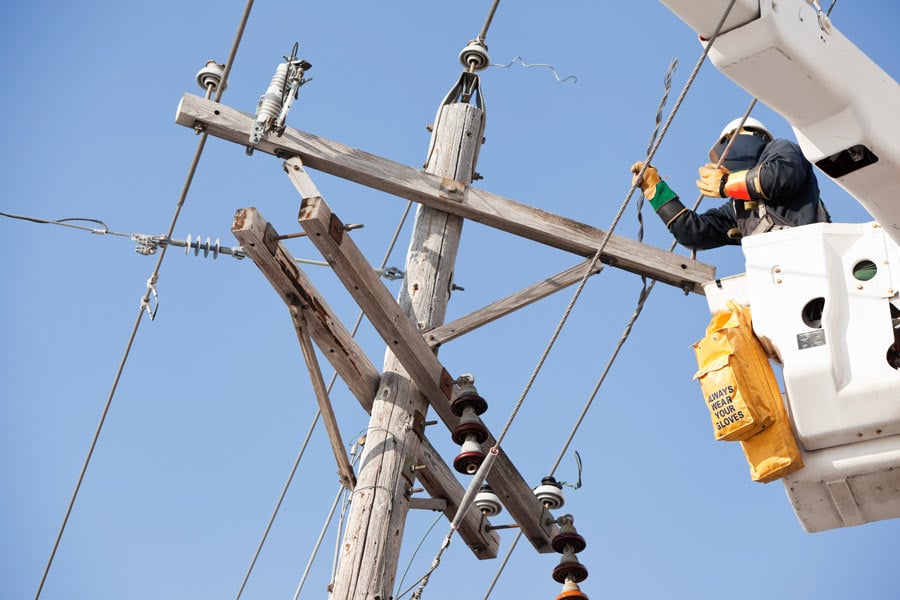
Linemen ensure that electrical power is properly distributed from power plant generation facilities to end-users. They are responsible for the installation and maintenance of all types of power transmission and distribution systems for industrial, commercial and residential markets. The duties of a lineman are described below.
- Installing and Maintaining Transformers and Other Equipment
- Stringing New Wire or Maintaining Old Wire
- Supervising Journey-Level Workers and Apprentices
- Installing and Maintaining Insulators
- Establishing Work Position for Maintaining and Repairing Overhead Distribution or Transmission Lines
- Planning and Initiating Project
- Establishing OSHA and Customer Safety Requirements
- Setting of Towers,
Poles - Installing, Repairing and Maintaining an Underground Electrical Distribution System
- Assembly and Erection of Substations
- Installing, Maintaining and Repairing Traffic or Train Signals and Outdoor Lighting
- Tree Trimming
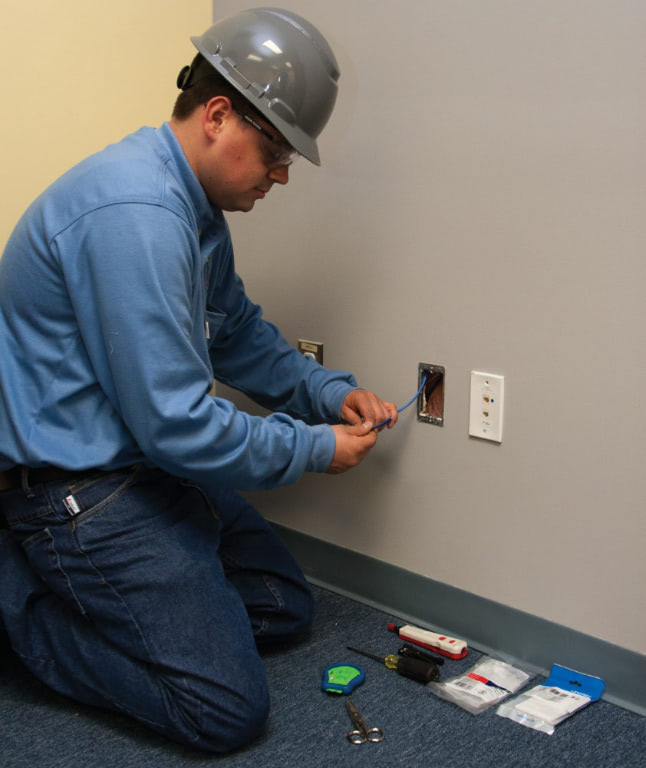
The Installer Technician works beside the Wireman, installing the network of low voltage cabling that is used for video, voice and data or other low voltage signaling.
While most installations are in buildings that are partially or fully enclosed to protect from sun, wind and rain, these installations often occur before air conditioning, heat or permanent light fixtures have been installed in the buildings.
Backbone voice and data cables are routed between the entrance facility, where communications signals enter a building, to equipment and telephone rooms. Voice and data horizontal cables are routed between telephone or equipment rooms and individual workstations throughout the building.
Equipment rooms often contain energized equipment such as hubs, file servers or telephone switches. These devices are configured and connected to the communications network that serves the building and must not be interrupted.
The Installer Technician installs voice and data outlets at workstations. In addition, they install punch down blocks and cross connects in telephone rooms. These may be wall-mounted or rack-mounted and must be grouped and identified according to specific installation standards. Whether the work is in new construction or in existing office or manufacturing space, the IBEW-NECA craftsperson takes pride in the work he or she has and can performed.
Many of the work processes of the Installer Technician are listed below. Properly trained Installer Technicians can work on a variety of types of systems, including systems for video, voice and data.
- Plan and Initiate Projects
- Install Underground Voice or Data Circuit Feeders to Entrance Facilities
- Provide or Connect to the Grounding Electrode System
- Install Pathways and Spaces for Installation of Low Voltage Wiring
- Install, Terminate and Test Wires and Cables, both Copper and Fiber-Optic
- Install, Test, Certify and Troubleshoot Local Area Network (LAN) Cabling Systems
- Lay Out, Install and Verify Operation of Security and Access Control Systems
- Install Communications and Sound Distribution Systems
- Provide Testing, Analysis and Repair of Video, Voice and Data Systems; including Electronic Devices
- such as Gateways, Routers, Hubs, NIC Cards, Telephone Switches, etc.
- Prefabricate Systems, such as Telecommunications Racks, for Field Installation
- Work on other Sub-systems such as Communications, Entertainment, Environmental, Life Safety, Energy Management and Custom Lighting


